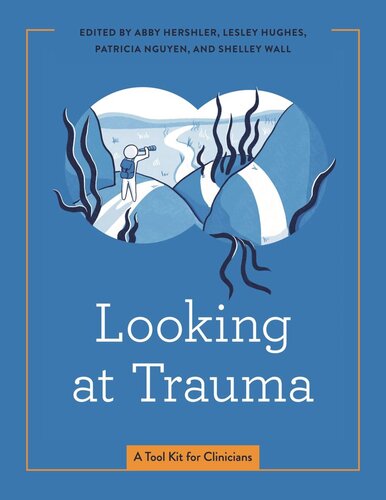

Most ebook files are in PDF format, so you can easily read them using various software such as Foxit Reader or directly on the Google Chrome browser.
Some ebook files are released by publishers in other formats such as .awz, .mobi, .epub, .fb2, etc. You may need to install specific software to read these formats on mobile/PC, such as Calibre.
Please read the tutorial at this link: https://ebookbell.com/faq
We offer FREE conversion to the popular formats you request; however, this may take some time. Therefore, right after payment, please email us, and we will try to provide the service as quickly as possible.
For some exceptional file formats or broken links (if any), please refrain from opening any disputes. Instead, email us first, and we will try to assist within a maximum of 6 hours.
EbookBell Team

5.0
20 reviewsLooking at Trauma: A Tool Kit for Clinicians is an easy-to-use, engaging resource designed to address the challenges health care professionals face in providing much-needed trauma psychoeducation to clients with histories of childhood trauma. Developed by trauma therapists Abby Hershler and Lesley Hughes in collaboration with artist Patricia Nguyen and biomedical communications specialist Shelley Wall, this book presents twelve trauma treatment models accompanied by innovative comics. The models help clinicians provide practical information about the impacts of trauma to their clients—and support those clients in understanding and managing their distressing symptoms.
Topics covered includecomplex posttraumatic stress disorder, stress disorder, emotion regulation, memory, relationship patterns, and self-care. Each chapter featuresstep-by-step instructions on how to use the treatment models with clients; practical educational tips from experienced clinicians in the field of childhood trauma; interactive trauma education comics; a foundational framework focused on care for the provider; and references for further study.
Intended for use in both therapeutic and classroom settings, this book is a valuable resource for all healthcare workers. In particular, social workers, psychotherapists, spiritual care providers, nurses, occupational therapists, psychologists, primary care physicians, and psychiatrists will find this tool kit indispensable.